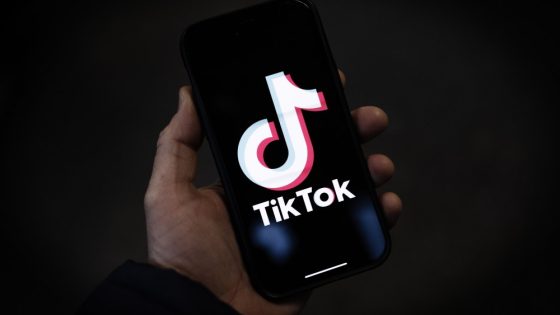The Justice Department sued TikTok and parent company ByteDance, alleging the popular video app repeatedly violated the U.S.’s Children’s Online Privacy Protection Act and related regulations.
The DOJ, together with the FTC, on Friday (Aug. 2) filed the civil lawsuit in the U.S. District Court for the Central District of California against TikTok, ByteDance and their affiliates. According to the complaint, from 2019 to the present, TikTok “knowingly permitted children to create regular TikTok accounts and to create, view and share short-form videos and messages with adults and others on the regular TikTok platform,” the DOJ said. The complaint seeks monetary penalties and injunctive relief.
TikTok collected and retained a “wide variety of personal information from these children without notifying or obtaining consent from their parents,” according to the Justice Department. COPPA requires websites and online services aimed at kids to obtain parental consent before collecting personal information from children under 13.
TikTok engaged in collecting kids’ data despite “being subject to a court order barring them from violating COPPA and imposing measures designed to ensure their compliance,” under a 2019 settlement agreement with the FTC.
The Justice Department “is deeply concerned that TikTok has continued to collect and retain children’s personal information despite a court order barring such conduct,” Acting Associate Attorney General Benjamin Mizer said in a statement. “With this action, the Department seeks to ensure that TikTok honors its obligation to protect children’s privacy rights and parents’ efforts to protect their children.”
FTC Chair Lina Khan said in a statement, “TikTok knowingly and repeatedly violated kids’ privacy, threatening the safety of millions of children across the country. The FTC will continue to use the full scope of its authorities to protect children online — especially as firms deploy increasingly sophisticated digital tools to surveil kids and profit from their data.”
In a statement about the lawsuit, TikTok said, “We disagree with these allegations, many of which relate to past events and practices that are factually inaccurate or have been addressed. We are proud of our efforts to protect children, and we will continue to update and improve the platform. To that end, we offer age-appropriate experiences with stringent safeguards, proactively remove suspected underage users, and have voluntarily launched features such as default screentime limits, Family Pairing, and additional privacy protections for minors.”
The DOJ alleged that even for accounts that were created in “kids’ mode” — a setting intended for children under 13 that disallows users from posting videos and has other restrictions — TikTok “unlawfully collected and retained children’s email addresses and other types of personal information.” In addition, when parents have discovered their children’s TikTok accounts and asked the company to delete the accounts and related information, “the defendants frequently failed to honor those requests,” the DOJ alleged. “The defendants also had deficient and ineffectual internal policies and processes for identifying and deleting TikTok accounts created by children.”
The DOJ lawsuit comes as TikTok is challenging a U.S. law passed this spring with bipartisan support that would ban the app unless Beijing-based ByteDance sells its stake in TikTok. American lawmakers backing the law cited fears that TikTok represents a national security threat, arguing the app could give the Chinese government a way to spy on Americans or push pro-China propaganda. TikTok argues that the law violates the First Amendment.
In 2019, TikTok agreed to pay $5.7 million to settle FTC allegations that it illegally collected personal info from children, which the agency said at the time was the largest civil penalty ever obtained in a children’s privacy case. The case alleged Musical.ly (TikTok’s predecessor) violated the U.S. Children’s Online Privacy Protection Act (COPPA), which requires websites and online services aimed at kids to obtain parental consent before collecting personal information from children under 13.
In June 2024, after a review of the settlement, the FTC said it investigated “additional potential violations of COPPA and the FTC Act” by TikTok. The complaint also names ByteDance, the Chinese internet giant that is TikTok’s parent.
Source Agencies



